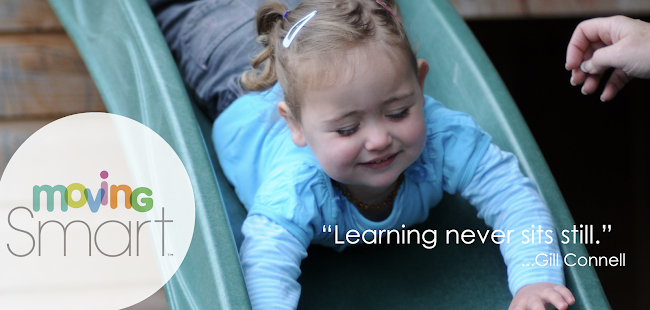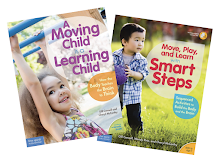As a mum and former early years teacher, I am fully qualified to tell you
it can be really difficult to get little ones to follow instructions
sometimes. Now, sure, there are times they don't want to do what you're asking
of them. And of course, they're easily distracted (especially when they don't
want to do what you're asking of them!). But in my experience, when instructions are a struggle, it probably has more to do with the
brain's ability to process new information and store it in memory long enough
for the instruction to be carried out.
It may not seem like it, but children are born with the same memory capacity adults have. What they're lacking is the experience they need to use it efficiently or effectively
just yet. That's because in the early years, the brain is laying down neural pathways that
determine how information is processed, stored, and retrieved. Until those
pathways are in place, reliable memory (short-, working-, and long-term memory)
is still a work in progress.
There are lots of fun ways to help children manage memory tasks, but one of my favorites is music...
Music & Memory
Music works
together with the brain to compress information and make it easier to retain. You see, the
human brain has limits to what it can store in short-term memory at any one
time. The repetitive nature of a musical melody enables the brain to group or
"chunk" multiple pieces of information.
An obvious example is The ABC
Song. Long before a child grasps the complex concept of symbolic language, he's
able to sing all the letters of the alphabet -- in order! We think "how
smart!" But it's really music condensing 26 pieces of information into
one memory.
Singstructions
So it goes, that if music helps little ones remember, then you both stand
a better chance with instructions if you add music to the mix. So here's an easy
trick... sing your instructions.
That's right, SING them.
For instance, try singing the following lyrics to the tune of Old MacDonald Had a Farm...
Time to tidy up
today
Let's put our
toys away.
Time to go.
We're on our way!
Hooray! Hooray!
Hooray!
Come sit by me and have a chat.
Come circle round the mat.
Music also cuts through the audio clutter to get children's attention...
Show me how you listen here.
Give me both your ears.
To be polite you
must say PLEASE
And THANK YOU very much
Dancestructions
Of course, little ones will remember even more when they physicalize
the instruction. So add movement through dance, finger plays, or whatever else
works. For example, rub your hands together as you sing...
Scrub-a-dub-dub
Let's wash our hands
And don't forget the SOAP!
Setting a Collaborative Tone
More than a memory trick, music and movement can be a shared language that
makes you partners in the instruction. Striking a collaborative tone
fosters understanding and respect between you while giving kids an active role
in the decision making. And any time a child plays a part in deciding things
for himself, he's learning what it feels like to be self-reliant.
So when it’s time to get the job done, start singing! And if you're shy
about your voice, don't worry. Kids respond to the voices they
know, love, and respect (even if you do sound like a frog!).
Close your eyes and snuggle in.
And let your dreams begin.














I love this. I found it amazing when my two were tiny tots that they could remember all their songs for their Christmas play, music definitely does help to stick things in your memory.
ReplyDeleteThis is SO true! I loved this blog post!
ReplyDeleteHeidi Butkus
http://www.heidisongs.com
Thanks for the reminder Gill. 25 years ago I started my career as a pediatric therapist in a kindergarten classroom. To this day, I can sing all the words to the "tidy up song" we used each day :)
ReplyDeleteExcellent, this is what we do with our Creative Movers and Pre-dance kiddos. They always respond well and we have wonderful results with them and they LOVE to come to class! :)
ReplyDelete